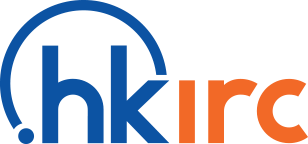Google Chrome OS: Is there no end to Google's ambition?
發佈時間:2009-07-09

瀏覽次數:7239次
When Sergey Brin and Larry Page founded Google in 1998 nobody - least of all them - thought that in a decade’s time they’d be at the head of one of the world’s most important companies. But with the news that Google is to launch its own operating system, directly challenging Microsoft’s Windows, it has become impossible to pretend that the search engine does not have ambitions extending far beyond simply answering its users questions.
Google Chrome OS will launch next year, and the company is already in advanced talks with computer manufacturers to make sure it is available on a wide range of small laptops, or “netbooks”. The first of its two key features will be seamless integration with the web, which is where Google envisages more applications being based, from word processing to email. Secondly, the company is aiming for a system that “just works”. That will mean start-up times that don’t make users wait for minutes, and an end to the constant stream of dialogue boxes that characterises Windows’s approach to security concerns. In essence, the idea is that “the web is the platform”, rather than programmers being require to work with a piece of software such as Vista.
One of the defining characteristics of the Chrome OS is that it will be “open-source”, because it’s basically the company’s web browser, Chrome, combined with Linux. This means that any software developer will be able to “help” Google to iron out bugs and to make improvements. In the blog that announced the new product, Google said “We have a lot of work to do, and we're definitely going to need a lot of help from the open source community to accomplish this vision.”
That means, essentially, free labour, although software developers will obviously be keen to build in ways in which they can make a profit. From Google’s perspective, however, all their expansion should be seen as having one over-riding aim: the company wants to make the web ever more important to consumers’ and businesses’ day to day lives, because that way the advertising the company sells will become increasingly valuable.
So when the question is asked “Is there no end to Google’s ambition?”, it’s equivalent to asking why Tesco used to sell simply food but now sells almost everything imaginable. The answer is simply about profit, and in Google’s case integrating the internet into the heart of every computer is an essential prerequisite.
Searching everywhere: Google's endless ambition
Email
Initially, the most attractive thing about Googlemail’s approach to email was its effectively unlimited inbox. That meant an end t the endless deleting of email that Microsoft’s “Exchange” server would demand before users were allowed to send an email. Now, however, other email providers have caught up and so Google has begun to concentrate on making its email cleverer. Messages are stored by conservation rather than date, which takes some getting used to – but Googlemail remains the only system that is consistently innovative. Its use of labels has, for instance, ended the duplication of messages that can be created by using folders. The product has even included features that can be used to prevent people from sending emails when drunk.
Healthcare
David Cameron recently suggested that Google’s “Health” product could be extended to the UK so that patients could access their health records more easily. The system has already been used successfully by a number of American healthcare providers, and has effectively demonstrated that many private companies are already on top of massive database projects. In Britain, meanwhile the NHS IT system has been mired in development woes for years.
Maps
Google’s Maps service has sometimes been controversial: its Streetview mode allows users to pan in on pictures of individual houses and some have said it is an invasion of privacy. The “Latitude” product allows friends who sign up to see each other’s locations on a map, and again issues of privacy have been raised. But location-based technologyis crucial to the future of the internet – if companies know where consumers are, they can send adverts to them (with consent) and know that it is much more effectively tragetted than a standard billboard.
Online Applications
Google Apps is a suite of Microsoft Office-style applications that works largely online. It’s free to consumers, while Office is at least £99 to most individuals. The features are less powerful, but that gap is only likely to close over time. The most important aspect, however, is that all a user’s documents are stored online, and are consequently accessible from anywhere in the world.
The Future
Google owns Picasa, a photo-sharing service, blogger.com, the blogging platform, and YouTube, the video-sharing website, as well as several other services, including the mobile phone operating system Android. What all of these have in common is that they all have elements of “cloud computing services”, which means that at least some user data is stored in central servers, and accessible from anywhere. With Chrome OS, the company is, however, breaking down the barriers between what people used to think of as their PC and “the cloud”. As time goes on, users can expect TV, business and leisure applications to be further integrated into one seamless Google system. Campaigners will complain that the company has a monopoly, but until others catch up, it will be Google who defines what modern computing is.
搜索




 (852)39995400
(852)39995400











